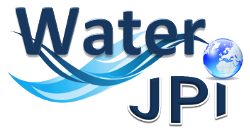Water JPI Knowledge Hub
Over the last few decades, several thematic policies and Research, Development and Innovation (RDI) activities have been put in place to protect, manage water resources and provide innovative solutions for achieving the global challenges faced. Despite these efforts, many regions in Europe and in the World still face water scarcity and/or water quality problems. Climate change, groundwater over-abstraction and diffuse pollution are, among others, the main factors influencing water availability and quality. If no action is taken, their impact will be even greater in the years to come. Guaranteeing a sustainable supply of good-quality water should be a priority for the society. Both thematic policy and research – Demonstration and Innovation activities should therefore contribute to this aim. Water supply for the development of different activities (agriculture, energy production, water public services, etc.) also needs to be ensured to benefit the economic prosperity of Europe.
General definition of Knowledge Hub
Knowledge hubs are thematic networks consisting of selected research groups within a defined scientific area targeted at stakeholders. These knowledge hubs are typically set up following joint call activities and research and innovation projects. In addition to improved communication and networking with stakeholders and the scientific community, the added values of the knowledge hub instrument include i) establishing a critical mass of research and technological excellence, ii) integration and sharing of knowledge, infrastructures, data and modelling tools, and iii) training and capacity building.
Knowledge Hub:
- provide the researchers with enhanced opportunities for mobility and sharing of/access to infrastructure;
- foster knowledge exchange and transfer; and
- allow transfer of innovative solutions to EU legislation; and beyond Europe legislations and regulations.
Aim of Water JPI Knowledge Hub
The aim of the Water JPI Knowledge Hub is to build a network for selected research groups whose work is targeted at stakeholders. The network will, within a specific research area, establish a critical mass of research and technological excellence, integration and sharing of knowledge, infrastructures, data and modelling tools, training and capacity building, in addition to improved communication and networking between stakeholders and the scientific community.
The objective is to focus on end-users’ needs and the generation of new knowledge. It supports a bottom-up perspective for the creation of a network involving researchers and stakeholders by promoting researchers’ knowledge exchange and sharing infrastructure.
Expected outputs from a Knowledge Hub
General and not limited to:
- Peer-reviewed publications (additional/related to the cluster);
- Online thematic forum;
- State of the Art Report;
- Foresight exercises (participating in events / workshops...);
- Providing input into the update of the SRIA;
- Knowledge exchange;
- Mutual learning;
- Exchange of good practices;
- Fostering coordination and sharing of results;
- Fostering mobility and sharing of infrastructure;
- Developing common practices / Standard methodologies developed;
- Presentation at Water JPI events; and
- Preparation of policy briefs, joint scientific publications, joint topic synthesis, harmonisation of protocols, working seminar outputs.
Added-value for Policy-makers
It is expected that the Water JPI Knowledge Hub will:
- Provide policy briefs on which they can rely.
- Narrow the gap between science and stakeholders.
- Provide a more holistic view of water challenges based on a multi-stakeholder approach.
Added-value for Researchers
It is expected that the Water JPI Knowledge Hub will:
- Allow researchers to inform the contents of the Strategic Research & Innovation needs for future funding.
- Provide researchers with opportunities for networking – Apply for other EU funding;
- Facilitate cooperation resulting in high-impact publications.
- Contribute to a greater number of scientific outputs (publications, patents, license, etc.) through collaboration.
- Build the researchers’ capacity through integrated, transnational and multi-disciplinary approaches and exchange of Good Practices.
- Provide the researchers with enhanced opportunities for mobility and sharing of/access to infrastructure.
- Allow access to EU legislation.
- Foster Knowledge exchange and transfer.
Added-value for Research and Innovation Funders
It is expected that the Water JPI Knowledge Hub will:
- Ensure that the solutions developed by research have a greater impact on & greater relevance to stakeholders and society;
- Bring together researchers in a more collaborative manner.
- Allow for the collaboration of researchers funded by the Water JPI to continue after the projects are completed.
- Contribute to alignment at project-, researcher- & institution-levels.
Download the second Policy Brief “Contaminants of Emerging Concern (CECs) – an emerging risk in our waters” from here.
Download the “Who is Who” of international researchers involved in the Water JPI Knowledge Hub on CECs from here.
Download the first Policy Brief “What is contaminating our waters next? Contaminants of Emerging Concern (CECs) – novel ways to reduce their human and environmental risks” from here.
Read more:
Water JPI Knowledge Hub on Contaminants of Emerging Concern
Water JPI International Knowledge Hub on UN Sustainable Development Goals
